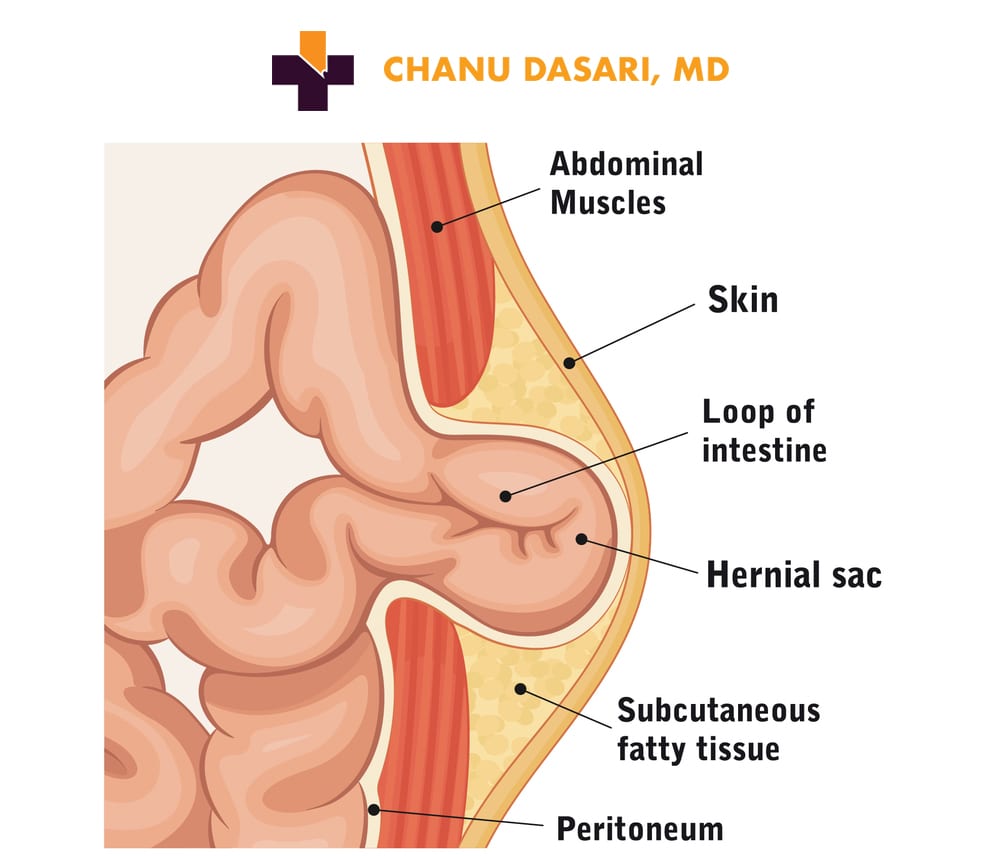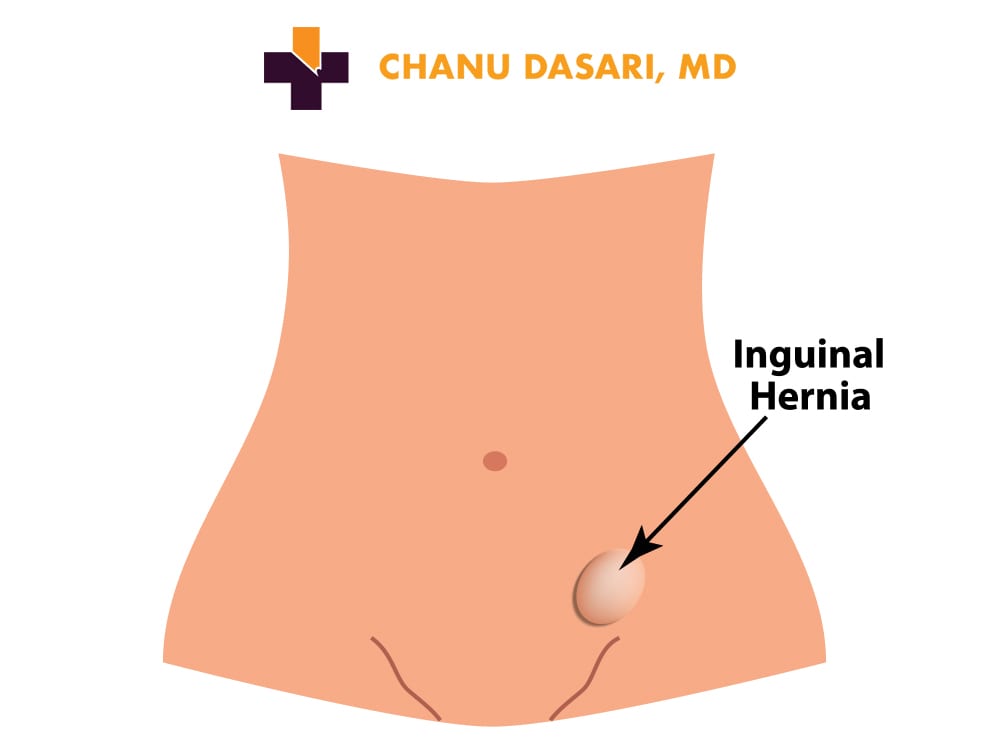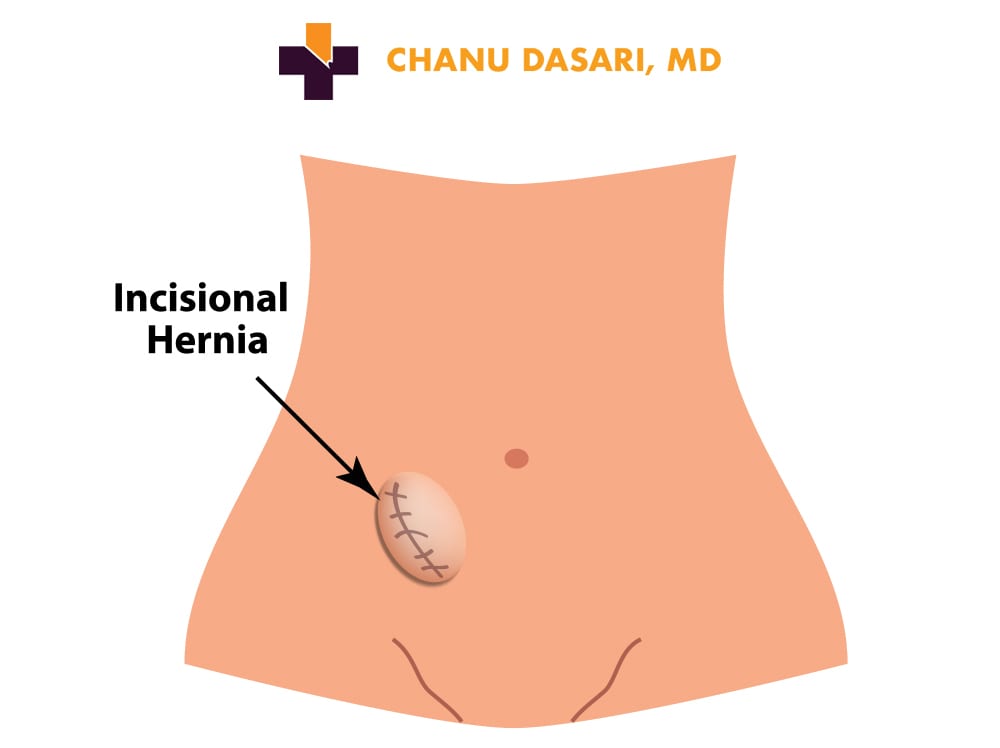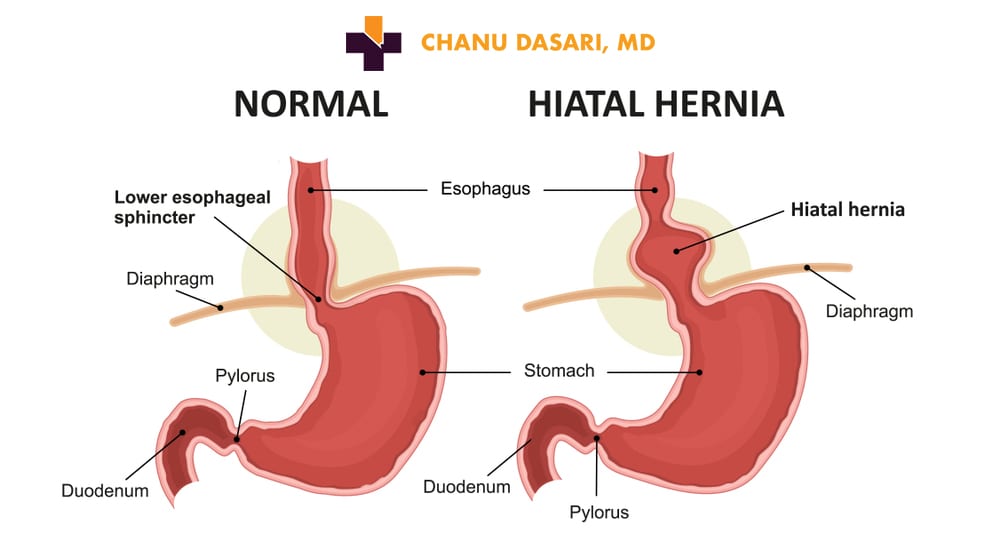Hernia Repair
Hernia Repair Treatment
Hernias occur when tissue from one location of the body enters another. Depending on the location and severity, the type of hernia repair treatment can vary.
Dr. Dasari uses advanced techniques for managing hernias, both surgically and non-surgically. He is committed to working closely with clients who express a preference for “no mesh” or “non-mesh” hernia repairs when possible to speed up recovery and minimize pain. During your assessment, you will undergo an extensive evaluation with close attention paid to minimizing and modifying risk factors for hernia formation and recurrence. Typically patients are walking the same day as their operation and resume normal activity in as little as 3-4 days. He has become one of the most trusted names in hernia repair surgery and has helped professional athletes, performers, doctors, and fellow surgeons, who sometimes travel great distances for his expertise.
Types of hernias treated:
Umbilical Hernia, Belly-Button Hernia
When an “inne” becomes an “outie” belly button.
Umbilical Hernias can occur in newborns and are sometimes referred to as “outies” Typically as the baby grows, the muscles and tissue strengthen around the belly button, and cause the umbilical defect to close. Hernia repair would be needed when the defect stays open, or become larger in size later in life, resulting in a hernia in adulthood.
Ventral Hernia, Abdominal Hernia
Ventral hernias, also called Abdominal Hernias, occur along the abdominal wall, and result in bulges which are felt and seen through the skin. These pockets can contain fat, and sometimes intestine.
Early symptoms include difficult bowel movements, constipation, and digestion problems. Hernia repair may be needed when the hernia grows in size, causes debilitating pain, or produces bowel obstructions, resulting in intestinal necrosis. Epigastric hernias are ventral hernias which occur above the level of the belly button. Spigelian hernias are ventral hernias which occur on the left or right side of the belly button.
Inguinal Hernia, Groin Hernia
Inguinal hernia is a type of groin hernia that can occur in both males and females, causing intermittent pain in lower abdomen and groin regions. These hernias can contain fat, intestine, and bladder. They can also be associated with intestinal obstructions and constipation. Typically the hernias start off positional in nature and “bulge” after standing or sitting for prolonged periods, as opposed to “no bulge” while lying flat. In severe cases where hernia repair is needed, the intestine can become trapped, with its blood supply cut off, resulting in a life-threatening emergency. In men, due to the anatomy of the testicles, the hernias more frequently occur on both sides, resulting in a bilateral hernia. Important to note: femoral hernia and obturator hernia also occur near the groin region and must be correctly identified and repaired using appropriate techniques. The older methods for fixing these hernias involve the “open technique” and are associated with chronic pain and prolonged recovery (up to several months). Fortunately, even the more complex bilateral hernias can be repaired using advanced laparoscopic and robotic techniques (1-centimeter incision). These types of repair minimize scarring, pain, and recovery time.
Incisional Hernia
Sometimes after a surgical procedure, the weakened tissue at the operative site may develop an incision hernia. These hernias start off small and can become very large in size, needing a hernia repair procedure. These can also contain fat, intestine, and bladder, producing the same symptoms as ventral hernias.
Hiatal Hernia
Hiatal hernias occur when the stomach pushes through the diaphragm into the lung cavity. Typically these hernias are associated with trouble eating, trouble swallowing, gastroesophageal reflux, and nausea. Paradoxically, Hiatal hernias can be seen in both weight gain (due to increased pressure on the abdominal content) and in weight loss (due to decreased calorie consumption). Over time small-sized hernias may grow, causing more severe symptoms. Fortunately, these hernias can be easily repaired surgically and safely performed alongside anti-reflux surgery, with small incisions (one centimeter) and fast recovery (one day).
Chronic/Recurrent Hernia
Chronic and Recurrent hernias are hernias that have been present for several months to years, cause intermittent symptoms, may have been repaired in the past, and cause significant nerve pain and inflammation. Typically, even if an implanted mesh is present, these types of hernias can contain organs that have eroded into or through a previous repair. It is very important to have a skilled surgeon manage this problem, due to the distorted anatomy and potential for identifying serious complications.
Traumatic Injury Hernia
If the hernia is traumatic in nature and associated with an auto- or work-related injury, please speak to your representative about workman’s comp hernia repair, or auto insurance lien hernia repair to get back on your feet and back to work quickly! Sometimes other injuries can mask symptoms early on, resulting in a “missed” diagnosis. These hernias, if left untreated, can cause long term problems related to physical disability and chronic pain.
Parastomal Hernia
For individuals with stomas and ostomies (ileostomy, colostomy, jejunostomy, gastrostomy), the tissue surrounding the intestinal passage, can become weakened over time. Additional organs can make their way through the defect and cause problems with the contour of the skin surrounding the opening. These deformities make it difficult to get an adequate fit on the ostomy devices. The hernias which contain additional intestine can also cause intermittent obstructions requiring an emergency hernia repair.
During your assessment, you will undergo an extensive evaluation with close attention paid to minimizing and modifying risk factors for hernia formation and recurrence. The risk factors for developing a hernia include:
- Heavy lifting
- Constipation
- Chronic cough
- High body mass index
- Smoking cigarettes
- Radiation
- Chemotherapy
- Poor Nutrition
- Physical Debility
Sports Hernia
Sports hernias occur when there is injury or strain to the groin muscles and/or hip ligaments. Typically, the external oblique muscle and inguinal ligament are involved causing prolonged pain, decreased range of motion, and difficulty walking. Hernia treatment for this type of issue is multimodal in nature and can result in accelerated recovery in a short period of time.
No insurance? No problem.
Dr. Dasari welcomes and accommodates uninsured, direct-pay clients, and offers special discounts for those traveling from other states or countries. If you are looking for the highest quality of minimally-invasive hernia repair treatments without the involvement of your insurance company, contact our caring staff today!
Traveling from Afar?
Dr. Dasari sees patients who are seeking specialized minimally invasive treatments from out of the state such as from California, Utah, Arizona, Texas, New York, Florida, Georgia, Kansas, Missouri, Tennessee, Illinois, Indiana, and Hawaii. He also sees patients from outside of the country such as from the UK, Australia, China, Saudi Arabia, and Mexico.
Dr. Dasari’s team assists with arrangements for your visit, including priority appointment times, special accommodations, and travel logistics. An online consultation and health records review will be scheduled.




